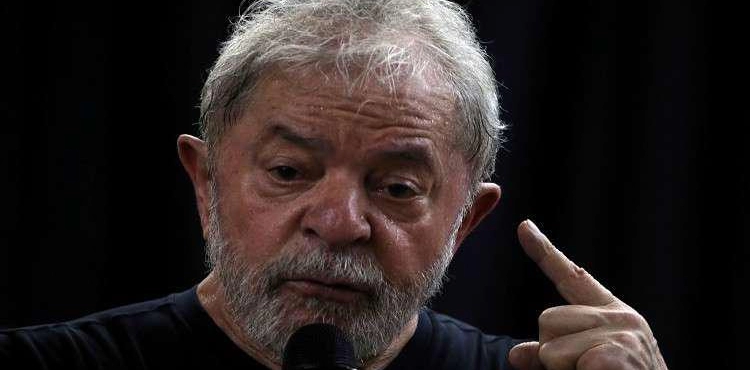Investigators on the corruption case have been ploting to prevent the return of former Brazilian President Luiz Inacio Lula da Silva to power last year, the Intercept website said, citing leaks that could shake Brazil.
The investigation, co-founded by American journalist Glenn Greenwald, was launched on Sunday after he learned of a large number of private messages transmitted, particularly on the application of the plea between plaintiffs and Judge Sergio Moro, who was charged with corruption. "He said.
Judge Sergio Moro is currently the justice minister in the government of far-right President Jair Paulsonaro.
"After long asserting that the motives are not political and the reason is only to combat corruption, prosecutors have conspired in the case of" quick washing "among themselves on ways to prevent the return of Lula and his Labor Party to power.
If confirmed, it would raise doubts about the necessary and presumed impartiality of Judge Moro, who apparently provided information and advice to the plaintiffs against Lula, who was sentenced in 2017.
Other letters reveal that the plaintiffs themselves had "serious doubts about the existence of sufficient evidence to condemn Lula" in the case of obtaining a three-storey apartment as a bribe, and eventually sent him to prison for eight years and ten months after his sentence was recently commuted.
Lola, who was the most likely candidate at the time, was prevented from running for president in October. He continued to assert his innocence and was the victim of a political plot to prevent him from running for a new third term, after serving two terms from 2003 to 2010.
For his part, Lula´s presidential candidate Fernando Haddad called for an in-depth investigation into what could become "the biggest institutional scandal in the history of the republic."
Haddad, who was defeated in the polls, told Polsonaro that if The Interspect´s information was correct, "many should be imprisoned, trials canceled and a farce revealed to the world."
In a quick response to the publication of this information, officials of the investigation into the "quick washing" case said they were "comfortable" in the face of the charges they accuse of working outside the law, expressing regret that they were "victims of a criminal act carried out by a pirate who carried out extremely dangerous activities against the prosecution And the private life and security of its members. "
"Unfortunately, the source (...), who is responsible for criminal piracy of mobile phones, did not disclose to the plaintiffs," and that the site "did not contact him before publishing the information and this violates the rules of the press," Judge Morrow said.
He added that the messages obtained illegally "taken out of context."
Moro denies any wrongdoing during the broad investigation that allowed the imprisonment of hundreds of politicians and economists in five years on charges of linking to a wide bribery network in public deals for the Brazilian oil group Petrobras.
"The documents obtained by our website around Brazil are of the most important in the history of the press," Glennwald wrote in a tweet.
"They contain dangerous secrets in the form of chats, sound recordings, video recordings, photocopies and other documents" about the Attorney General for the quick washing case (Lava Gatu) Deltan Dalaniol, Judge Moro and "a large number of officials who still exert considerable political and economic influence in Brazil and other countries" .
"Our investigations are just beginning," he warned.
PETROBRAS - PETROLEO BRASILEIRO












